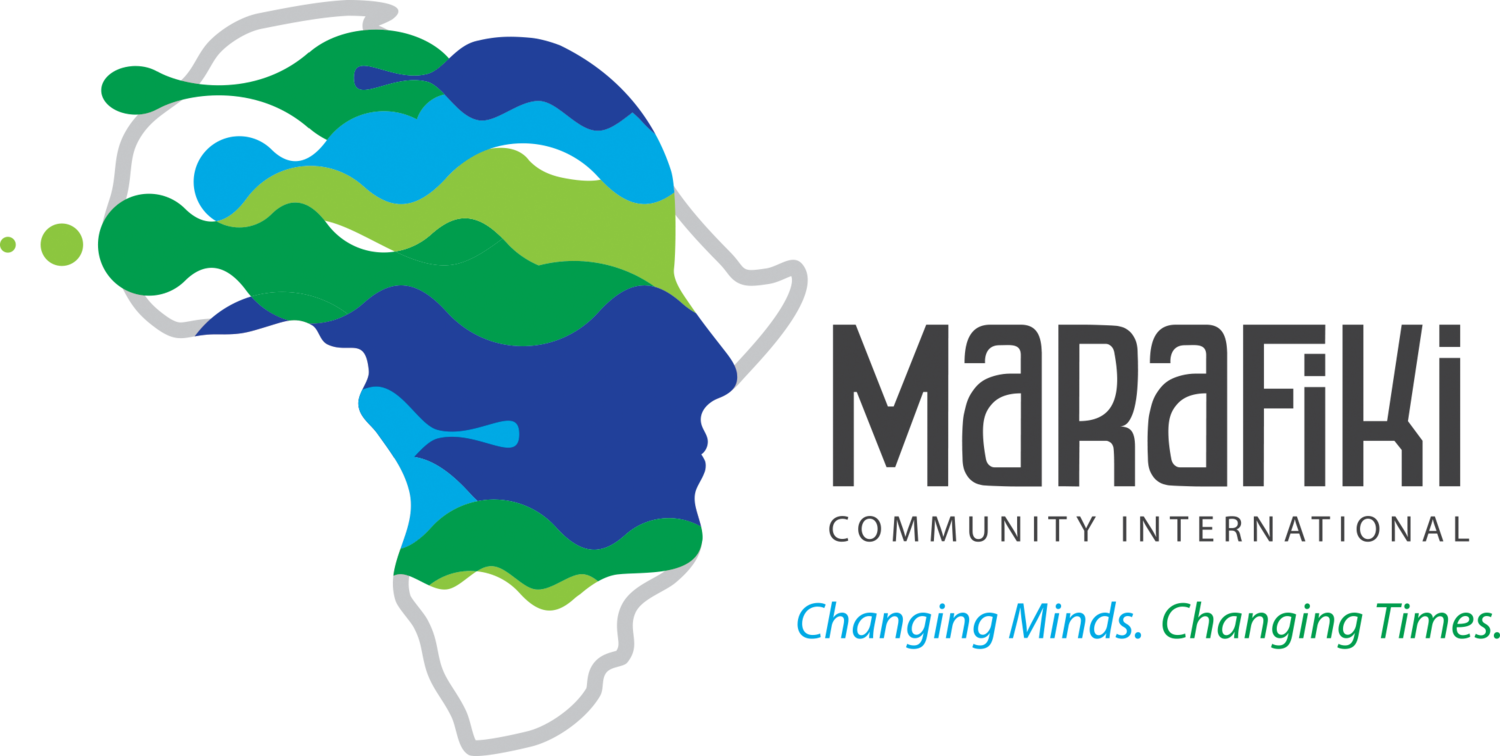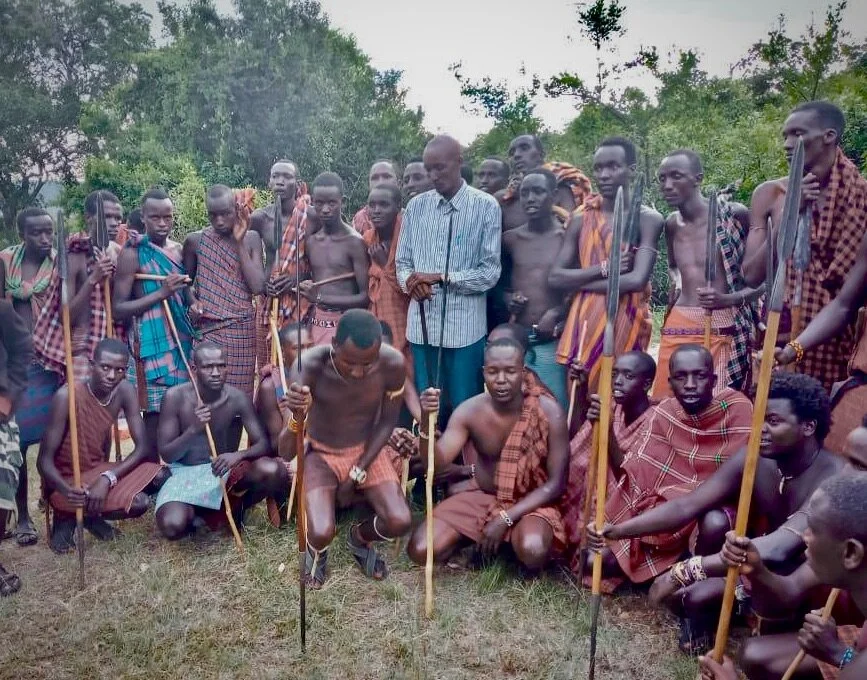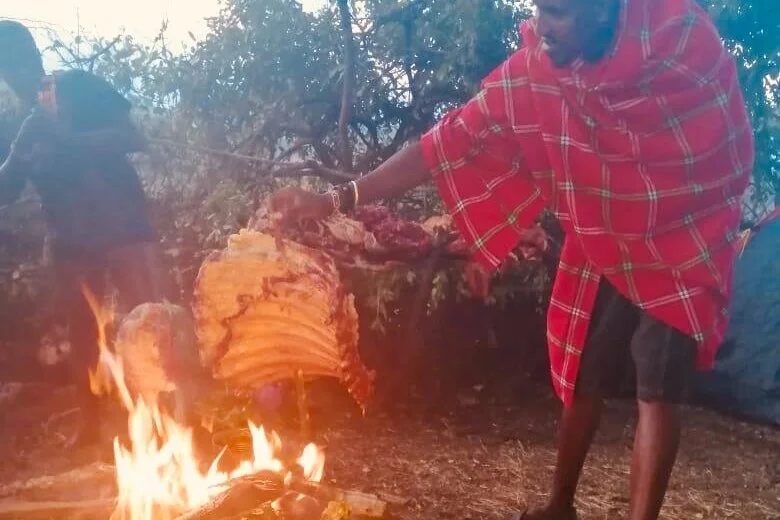What the Maasai taught me during COVID
In 2015, I was driving back from a safari trip with clients who were volunteering in Kenya at the time and saw a group of children gathered under a tree. I stopped to see what they were doing. I didn’t know much or understood the Maasai community at the time, but it looked like they were running a school and I knew that was extraordinary. Before the year ended, we took on the challenge to build them a school and that has been the beginning of really getting to see their culture.
As a Kikuyu man, I have been honored to be included in many meetings and ceremonies of the Maasai people and we have a mutually respectful relationship. While we may disagree on some things, we understand our differences and we can shake on them after sharing a goat.
Today I checked in with some of my friends in Maasai Mara and they lifted my spirits as they became proof of the values that we share in Marafiki and that we want to continue to nurture and live through.
These men from one of the villages in Maasai Mara, though not very trusting that COVID19 is real or that it will ever get to them, decided to go back to basics. They slaughtered 4 cows for themselves and their families and made their way to the bush where they spent 3 weeks. The women stayed back in the village with plenty of food to take care of the kids. During this time they ate meat, cooked soup, drank blood and shared stories. They gathered herbs to drink with their soup to become stronger in case there is an epidemy to fight. I have always found Maasai elders to be very honest and wise, and their teachings are passed from generation to generation through story telling. A high percentage of Maasai cannot read or write and their traditions are unwritten, but alive. One of the biggest issues we see in suburban Kenya is young men and women raised without their culture or traditions and struggling to understand where and how they belong.
This community is very involved in tourism – thousands of tourists rush to Maasai Mara every year and most will visit a Maasai Village in order to understand their tribal way of life. It’s easy to think that they are suffering during the pandemic, that they need the tourism to survive. However, these are Maasai we are talking about! Maasai have lived on milk, blood and meat for generations and even lions can be intimidated by their presence.
I think it’s really healthy for them to go back to their roots and learn from each other without the interruption of other cultures, tourists, bars or travelling. All of us can learn from them. They are challenging us to go back to basics, taking time out to learn more about where they come from and who they are and to invest in their health, Maasai Style. And encouraging me to continue to do the same.
During this pandemic period, the only request that we have received in the area has been for water, which continues to be the best investment we made in the area. The water supply in some of the Maasai Villages has either been exhausted or polluted, often by tourism, and we are happy that we can provide this from our water tower in our HQ in Maasai Mara.
Seeing my fellow Maasai go into the bush for 3 weeks as their way of living through COVID19 has reaffirmed values that are at the heart of Marafiki. We do not exist to change culture or tradition. Yes, we will use education as our weapon against violence of any description and we are committed to that long term. But we exist to help communities with what they want to improve, and enhance the best parts of their traditions without making them unsustainable and suddenly unable to exist without their extra money from tourism or our projects.
And we learn from them as we, as a family, create culture and traditions of our own.
Izzo Mwangi


